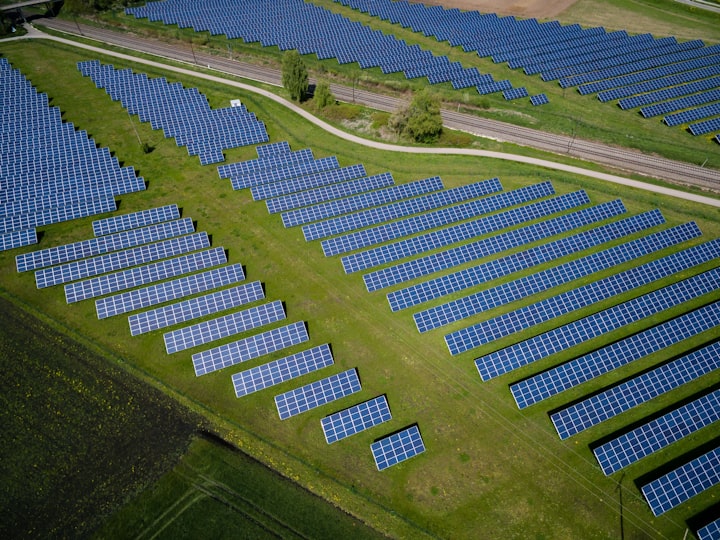Unlocking the potential: A comprehensive analysis of solar panels and their impact on clean energy
Exploring the history, technology and current applications of photovoltaic cells in the fight against climate change

Solar energy is a clean, renewable energy source that has gained popularity in recent years as a way to reduce dependence on fossil fuels and decrease carbon emissions. Solar panels, also known as photovoltaic cells, are the primary technology used to convert sunlight into electricity. In this article, we will discuss the history, technology, and current applications of solar panels.
The history of solar panels can be traced back to the late 19th century, when scientists first discovered the photovoltaic effect, the phenomenon by which certain materials generate an electric current when exposed to light. However, it wasn't until the 1950s and 60s that the first practical solar cells were developed, primarily for use in space satellites.
The technology of solar panels has evolved significantly since their early days. Traditional solar panels use silicon as the primary material for the photovoltaic cells. However, in recent years, new materials such as thin-film solar cells, made from materials like cadmium telluride and copper indium gallium selenide, have been developed and have shown great potential in increasing the efficiency and reducing the cost of solar panels.
The efficiency of solar panels refers to the percentage of sunlight that is converted into electricity. The efficiency of traditional silicon solar panels is typically around 15-20%, while the efficiency of newer thin-film solar cells can be as high as 20-25%. Research is ongoing to further increase the efficiency of solar panels.
Solar panels can be used for a variety of applications, including residential, commercial, and industrial use. Residential solar panel systems, also known as rooftop solar systems, allow homeowners to generate their own electricity and potentially offset their utility bills. Commercial and industrial solar panel systems, also known as utility-scale solar systems, can generate large amounts of electricity for use by businesses and municipalities.
In addition to traditional solar panel systems, there are also newer technologies such as solar thermal systems, which use the sun's heat to produce electricity, and concentrated solar power systems, which use mirrors to focus the sun's energy to produce electricity.
One of the benefits of solar energy is that it is a clean, renewable energy source. Unlike fossil fuels, solar panels do not emit any pollutants or greenhouse gases. This makes them a valuable tool in the fight against climate change.
Another benefit of solar energy is that it is becoming increasingly cost-competitive with traditional energy sources. The cost of solar panels has decreased significantly in recent years, and it is expected to continue to decrease in the future. In many cases, the cost of solar energy is now comparable to or even less than the cost of electricity generated from fossil fuels.
However, there are also some limitations to solar energy. One limitation is that solar panels are not able to generate electricity at night or during periods of low sunlight. This is typically addressed through the use of energy storage systems, such as batteries, which can store the electricity generated by solar panels for use during periods of low sunlight.
Another limitation is that solar panels can be affected by weather conditions such as dust, snow, and shading. This can decrease the efficiency of the solar panels and reduce the amount of electricity generated. Regular cleaning and maintenance of solar panels can help to mitigate these effects.
In conclusion, solar panels are a promising technology for generating clean, renewable energy. The efficiency and cost of solar panels have improved significantly in recent years, and they have a wide range of applications, from residential rooftop systems to large commercial and industrial systems. However, there are still some limitations to the technology, such as the dependence on sunlight and weather conditions. Ongoing research and development are expected to continue to improve the efficiency and cost-effectiveness of solar panels in the future.






Comments
Geert Verreet is not accepting comments at the moment
Want to show your support? Send them a one-off tip.